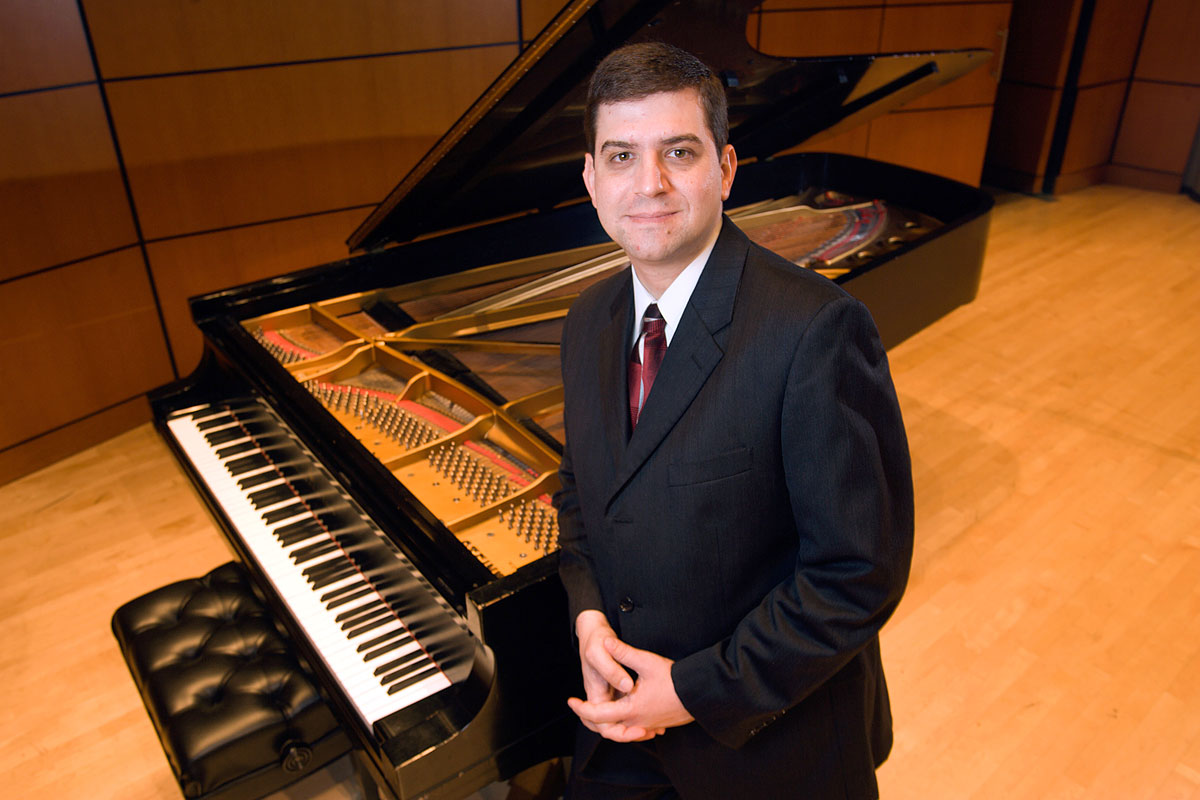UGA has just become a central location for piano teachers. Peter Jutras, an assistant professor in the Hugh Hodgson School of Music, has been named editor-in-chief of Clavier Companion, the only independent magazine serving piano teachers across the U.S.
In this position, Jutras, director of undergraduate and graduate piano pedagogy programs, will be an important resource for teachers who spend their days and nights instructing those who learn the lifelong joy of the keyboard. It is a role for which he’s been preparing all his life.
And it’s been an amazing ascent for a musician who had never been a professional editor until two years ago.
“I always liked to write as well as play the piano,” said Jutras. “I never expected to be able to combine the two, and it’s a challenge to which I’m looking forward.”
Until last fall, there were two U.S. piano pedagogy magazines, each with a loyal following: Clavier and Keyboard Companion. Clavier was the senior journal, having been around nearly half a century, while KC had started in 1990. Because of his love of writing, Jutras had submitted some articles to KC several years ago, and to his surprise, the editor published them.
When there was an opening for the editorship of KC in 2006, a member of the board of the Frances Clark Center for Keyboard Pedagogy in Princeton, N.J., which published KC, invited Jutras to apply.
“It was not on my radar, but it seemed like a good opportunity, so I applied,” said Jutras. “I was, at the same time, in the middle of applying for a faculty position at UGA. It was a busy time—both searches involved extensive preparation for a variety of materials.”
Possibly moving from Dallas, where he and his family lived, was not an easy decision. His wife, Kristin, was a violinist with the Dallas Symphony Orchestra, and Jutras owned and operated his own very busy piano studio. They also have two small children, so each day was a challenge.
Unsure that he would get the editorship or the faculty job at UGA—competition for any faculty job at a major university is fierce—Jutras applied for both and prepared to sweat it out. To his astonishment, he was offered the editorship of Keyboard Companion and became a finalist for the job in the Hugh Hodgson School of Music at almost the same time.
“I was offered the editorial position, and only a few days later I was invited to visit Athens as a finalist for the position at UGA,” said Jutras. “It was an amazing time.”
What Jutras couldn’t know, however, was that Clavier and Keyboard Companion were about to merge. Now renamed Clavier Companion, Jutras became the merged magazine’s editor-in-chief.
The timing couldn’t be more perfect. While piano pedagogy itself is a master’s program with perhaps five majors at any one time (about the national average for universities), it also has course offerings for all piano majors, graduate and undergraduate. Jutras is also in charge of the undergraduate group piano curriculum. That involves every student in the school, all of whom are required to have some proficiency in the piano regardless of their major area of study.
To that end, Jutras wrote a grant that last year enabled the Hodgson School to install a state-of-the-art group-piano-teaching lab—one of the most advanced in the country. The facility, on the fifth floor of the music building, down the hall from Jutras’s own studio, has 12 Clavinova pianos, electronic keyboards that are marvels for teaching and learning, each connected to its own computer. A teacher’s station at the front of the class allows either Jutras or an instructor to monitor students one at a time on earphones or in small or large groups.
Jutras’ connections to the rest of the piano pedagogy world through Clavier Companion will be invaluable both to piano majors and future piano teachers.
The first issue of Clavier Companion includes interviews with legendary pianists and will be mailed to more than 14,000 readers.


